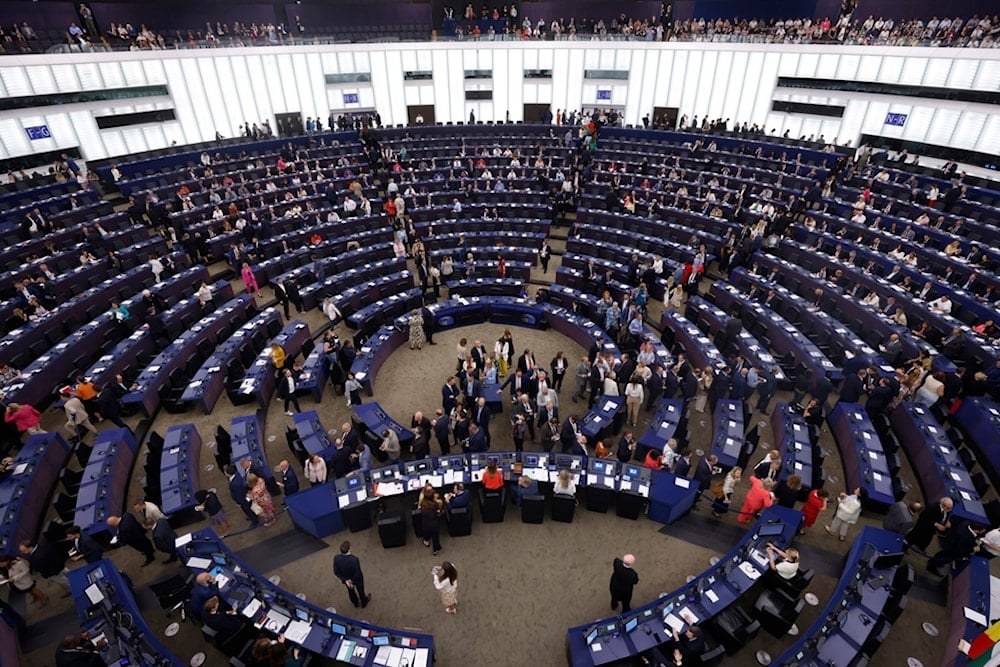Is the European Union heading for collapse?: Bloomberg
If the bloc fails to modernize and address its economic and political divisions, it risks being relegated to a second-tier power in a rapidly changing world.
-

Members of the European Parliament enter the plenary chamber as they prepare to vote at the European Parliament in Strasbourg, eastern France, Thursday, July 18, 2024. (AP)
An op-ed published by writer Ben Sills for Bloomberg on Monday paints a stark picture of Europe's current trajectory, describing a region grappling with economic turmoil and political uncertainty.
The piece highlights that recent decisions, particularly by French President Emmanuel Macron, may have sent shockwaves through the EU, pushing it to a precarious tipping point.
The instability began when Macron, after suffering a significant electoral defeat to Marine Le Pen's right-wing National Rally in the European parliamentary elections, called a snap election in an attempt to regain political momentum.
This decision has since triggered months of market volatility and political tension in France—one of the EU's key economies.
According to Sills, this turmoil threatens to spread across the continent, undermining investor confidence and deepening divisions between EU member states.
Read more: Euro plummets, as Macron's snap election call shakes markets
The economic challenges facing the bloc are mounting. Germany, the EU's industrial backbone, is currently mired in a recession, with its automotive sector struggling to adapt to the transition to electric vehicles while facing weakening demand from China.
Meanwhile, a €30 billion semiconductor initiative involving Intel, intended to bolster Europe's tech independence, is reportedly unraveling.
In the tech sector, US firms are increasingly turning their backs on Europe due to stringent regulations on artificial intelligence, adding to the region's economic headaches.
Sills' analysis further points to growing disillusionment with the EU's leadership, as evidenced by Spain's criticism of its trade policies and growing unrest in member nations.
This fragmented response, Sills argues, reflects a larger issue; European leaders appear slow to recognize the scale of the crisis at hand, and their lack of decisive action has left the continent vulnerable.
Read more: The triple shock facing Europe’s economy: Economist
While Sills acknowledges that Europe has faced existential crises before—such as the eurozone debt crisis and Brexit—he warns that the current situation may push the EU into a more vulnerable position on the global stage.
If the bloc fails to modernize and address its economic and political divisions, it risks being relegated to a second-tier power in a rapidly changing world.
The op-ed's conclusions are clear; Europe's future is uncertain, and unless its leaders can bridge the growing gaps between economic realities and political ambitions, the continent may struggle to maintain its influence on the world stage.

 3 Min Read
3 Min Read








